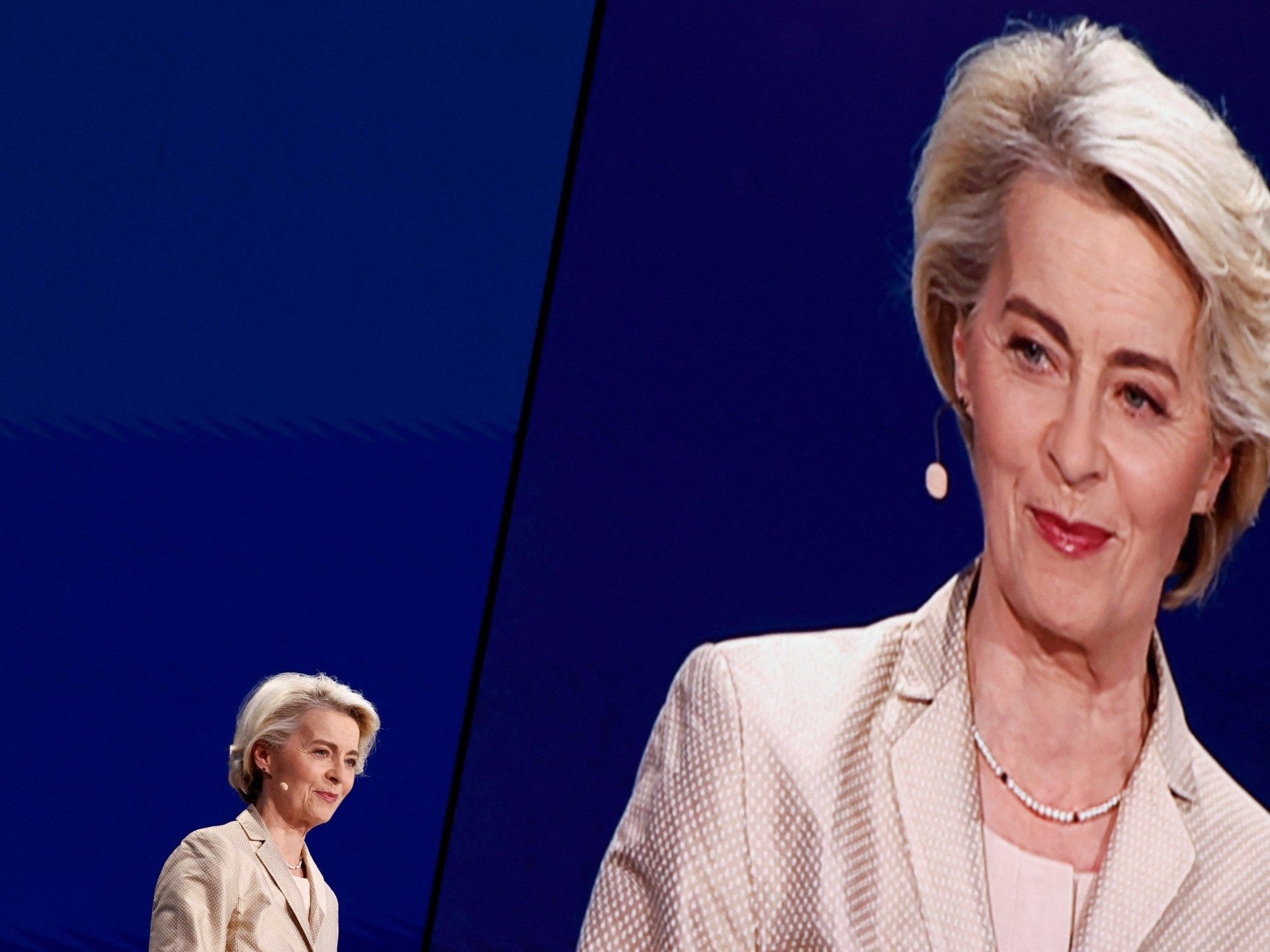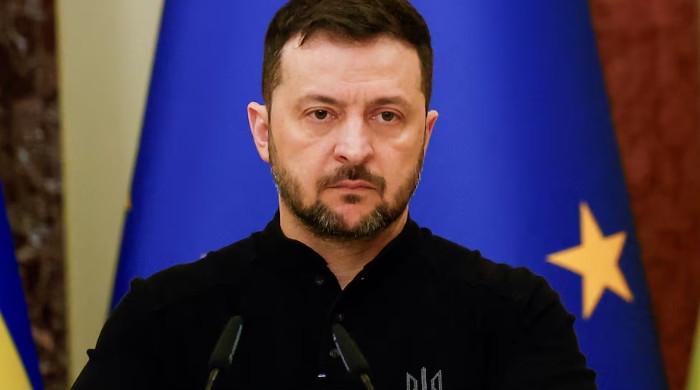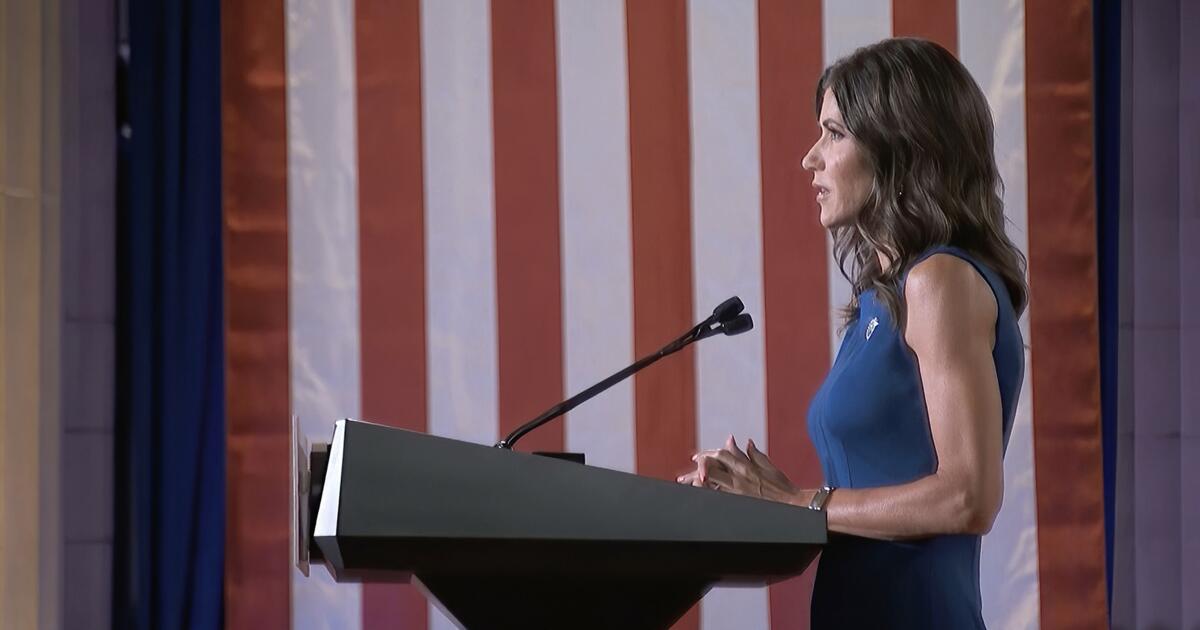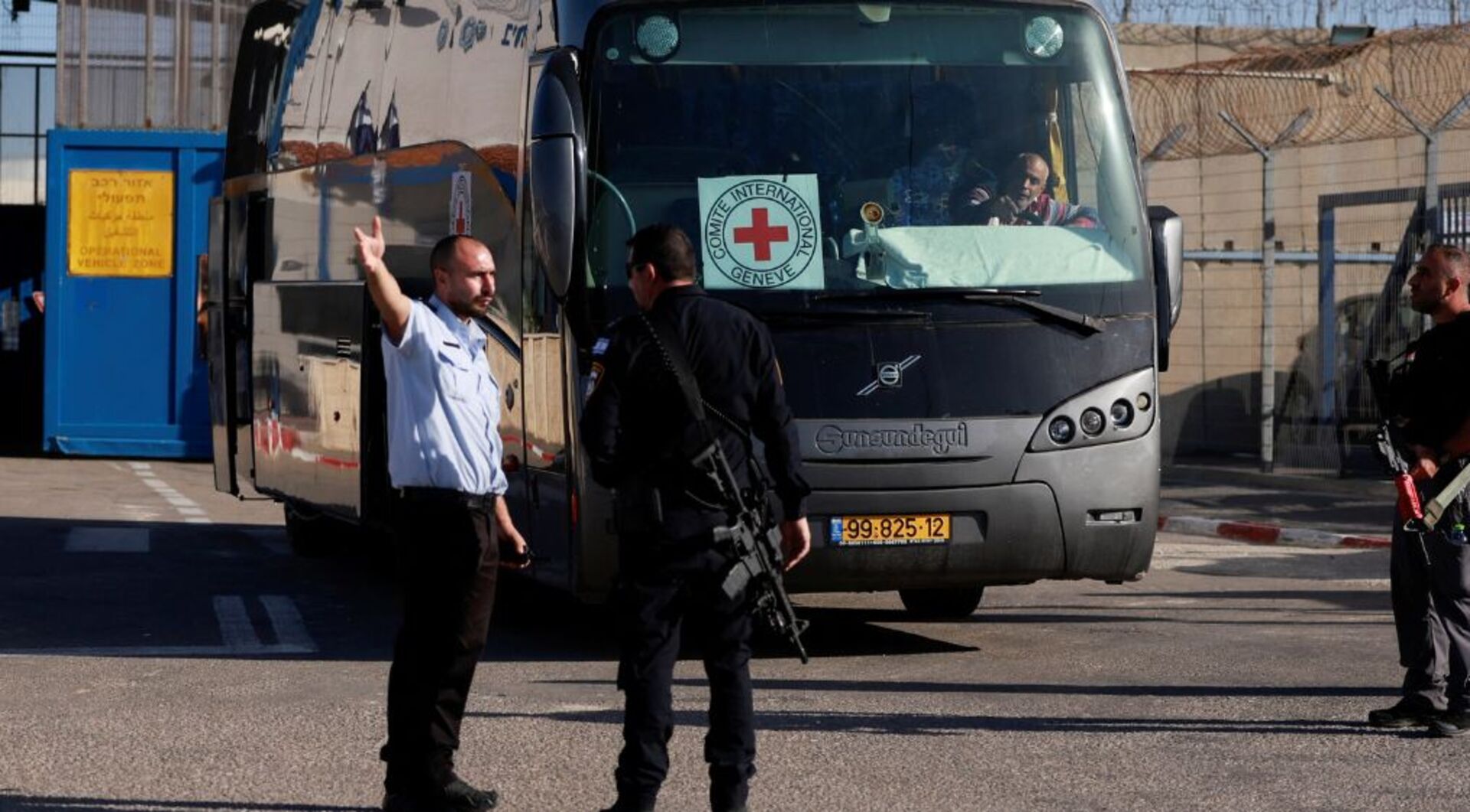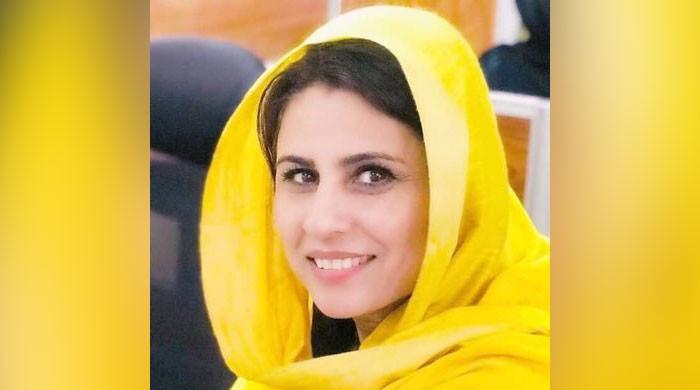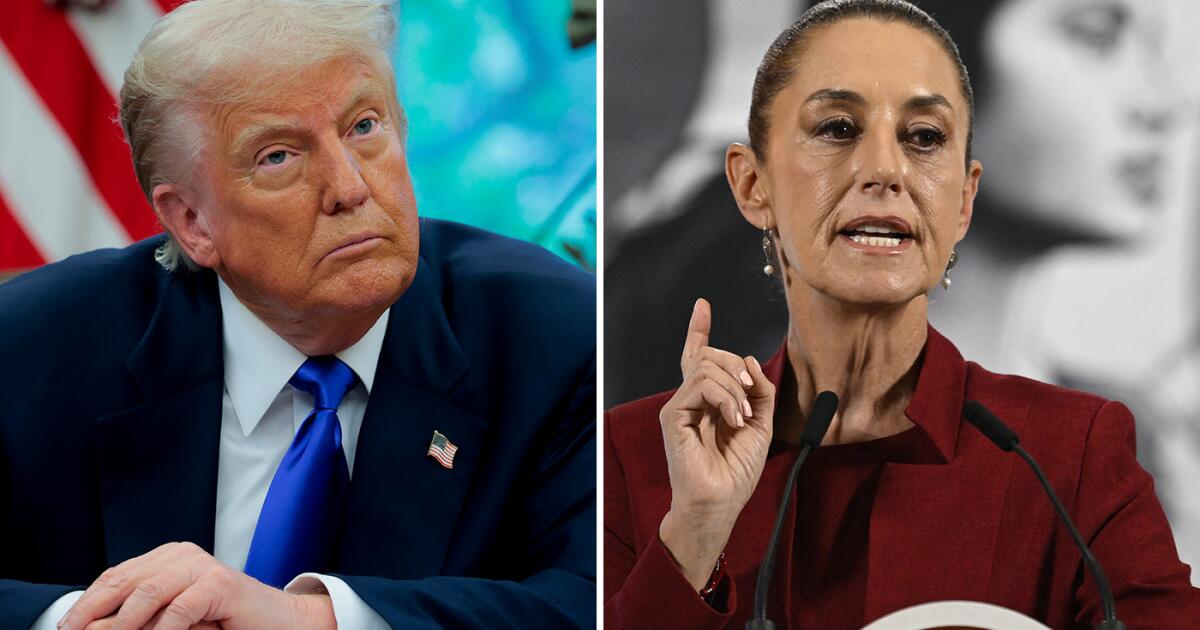The ground under the feet of European Union leaders has shifted after votes across the 27-member bloc generated a clear shift to the right in the European Parliament, shaking member state governments and leaving dominant groups at a crossroads.
European Commission President Ursula von der Leyen claimed victory after her centre-right European People's Party (EPP) retained the most seats of any group in the legislative body.
But so did far-right, eurosceptic and populist parties, including Marine Le Pen's National Rally, whose victory prompted a surprise call from French President Emmanuel Macron for early elections.
The crushing blow dealt to the Liberals in France and the Greens in Germany looks set to make it harder for a conventional centrist alliance to set Europe's course for the next five years, compromising key EU projects including the Green Deal, analysts said.
“Under this parliament, it will be difficult to read a clear strategic agenda other than some of the basic principles around security and the economy,” Susi Dennison, senior policy researcher at the European Council on Foreign Relations (ECFR), told Al Jazeera. .
“What we will see emerge is deal-by-deal policymaking,” he said, adding that the far right would “play hardball” to exert influence on Europe's decisions.
A far-right enigma
The EPP won a clear victory in the elections, strengthening its influence in the European Parliament with 185 of its 720 seats.
“We won the European elections, we are by far the strongest party, we are the anchor of stability and people recognized our leadership over the last five years,” von der Leyen told supporters on Sunday as votes were still being counted. was underway.
Together with other groups, the EPP “will build a bastion against the extremes of the left and the right. …We will stop them. This is for sure,” he said.
But it is still unclear which groups would be considered “extreme” and whether the far-right group European Conservatives and Reformists (ECR), led by Italian Prime Minister Giorgia Meloni, whose Brothers of Italy party has its roots in the post-World War II . The neo-fascist Italian Social Movement would be among them.
Despite the EPP winning around a quarter of the seats, its previous “super grand coalition” with the liberal parties of the Renew group and the Greens failed to retain a functional majority of MEPs, leaving the centre-right bloc in need of allies.
Von der Leyen is also seeking a second term as president of the powerful European Commission, for which she needs a “qualified majority” of the leaders of the 27 EU countries and a majority in the European Parliament.
Before the election, von der Leyen indicated she would be open to a deal with the often staunchly eurosceptic ECR, which is more acceptable to centrists than the far-right European political bloc Identity and Democracy (ID), led by the Rally. French National. She set two conditions for working together: support for Ukraine and the rule of law.
But the EPP will have to choose carefully who to side with.
The main left-wing parties, including the Socialists and Democrats (S&D) and the Greens, have ruled out working with the EPP if it continues to move closer to the ECR.
Meanwhile, Meloni welcomed the EU election results and said there were “opportunities to change the European landscape that have never existed before”.
According to Giorgio Sorgona, a professor at the Normal University of Pisa, Meloni managed to mobilize voters to turn out for the European elections, in which only one in two Italians went to the polls, and confirmed his party's status as the most important in Italy. popular, improving its performance from 26 percent in the 2022 general election to 28.8 percent.
Meloni, who personalized the election campaign by putting his name forward for the European Parliament, has now positioned himself as one of the most powerful figures in the EU.
However, the dialogue between the EPP and Meloni will be problematic for both parties, Sorgona said. Meloni's party is allied at home with Matteo Salvini's League, which has joined the ID group in the EU and will probably not look favorably on Meloni helping the EPP marginalize the far right.
Meanwhile, the EPP is also unlikely to find common ground with the ECR on issues such as civil rights for migrants on European soil and reforms to tackle climate change and move Europe towards a green transition.
On the other hand, removing the hard right from the equation may give the big losers of this election – Renew and the Greens – kingmaker roles, according to ECFR's Dennison.
“The risk of this strategy is that it plays with the extreme right's argument that the center is undemocratic and does not respect the will of the people,” said the analyst.
Rise of the far right
Far-right parties topped polls in several European countries, but nowhere was the blow as hard as in France, where the National Rally won 31.5 percent of the vote, more than double that of Macron's Renaissance party. .
“This great victory of the patriotic movements is in line with the direction of history, which is seeing the return of nations all over the world,” Le Pen said, adding that her party was ready to lead the country's second-largest economy. the EU after the early elections scheduled for June 30 and July 7.
Overall, Europe's ID group won 58 seats as of Monday, 8.1 percent more than in the previous EU elections in 2019.
In addition to the National Rally's performance in France, the ID group was bolstered by the victory of the Austrian Freedom Party, which won more than 25 percent of the vote, and the strong performance of the Dutch Freedom Party with more than 17 percent.
In Belgium, Prime Minister Alexander De Croo announced his resignation following the defeat of his Flemish Liberals and Democrats party, which was trailing the Flemish nationalist party Vlaams Belang.
Despite being the subject of scandals, the Alternative for Germany (AfD) party came second in Europe's largest economy with 16 percent of the vote, ahead of Chancellor Olaf Scholz's party, the Social Democrats, and 5 points. percentages more than in 2019.
“The weak performance of Scholz's coalition further increases pressure on his government” ahead of budget negotiations in the coming weeks, York Albrecht, a researcher at the European Policy Institute in Berlin, told Al Jazeera.
“The strong participation of the AfD, especially in the East German states, shows that the party is increasingly consolidating itself in the German party system,” Albrecht added. “However, their results are lower than those in polls earlier this year, which could show that some scandals turned voters into [away].”
The AfD did not join one of Europe's recognized political groups after being expelled from the ID group after its top candidate said not all members of the elite Nazi SS unit were war criminals. An aide was also accused of spying for China, while another candidate faced accusations of receiving bribes from a pro-Russian news portal.
Hungary's ruling party, Fidesz, led by Prime Minister Viktor Orban, was an outlier amid a growing far-right trend, as it delivered one of the biggest surprises of the election. While the newly founded Tisza party won 30 percent of the vote in Hungary, Fidesz had its worst ever result in a European Parliament election, with 44 percent.
If far-right and far-right parties were to unite into a single group, they would become the largest force in Europe behind the EPP. But analysts said this is unlikely, as the war in Ukraine is the main dividing line between the Atlanticist ECR and the Russian-leaning ID.
“Debates about the unification of the groups are not relevant,” Albrecht said. “What we will see is cooperation and coordination between MEPs” with far-right and far-right groups operating in unison on common issues, including a tougher stance on migration and measures freeing Europe from environmental regulations.

